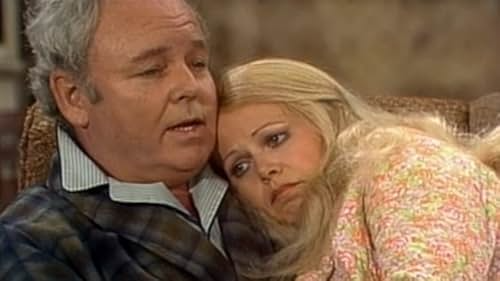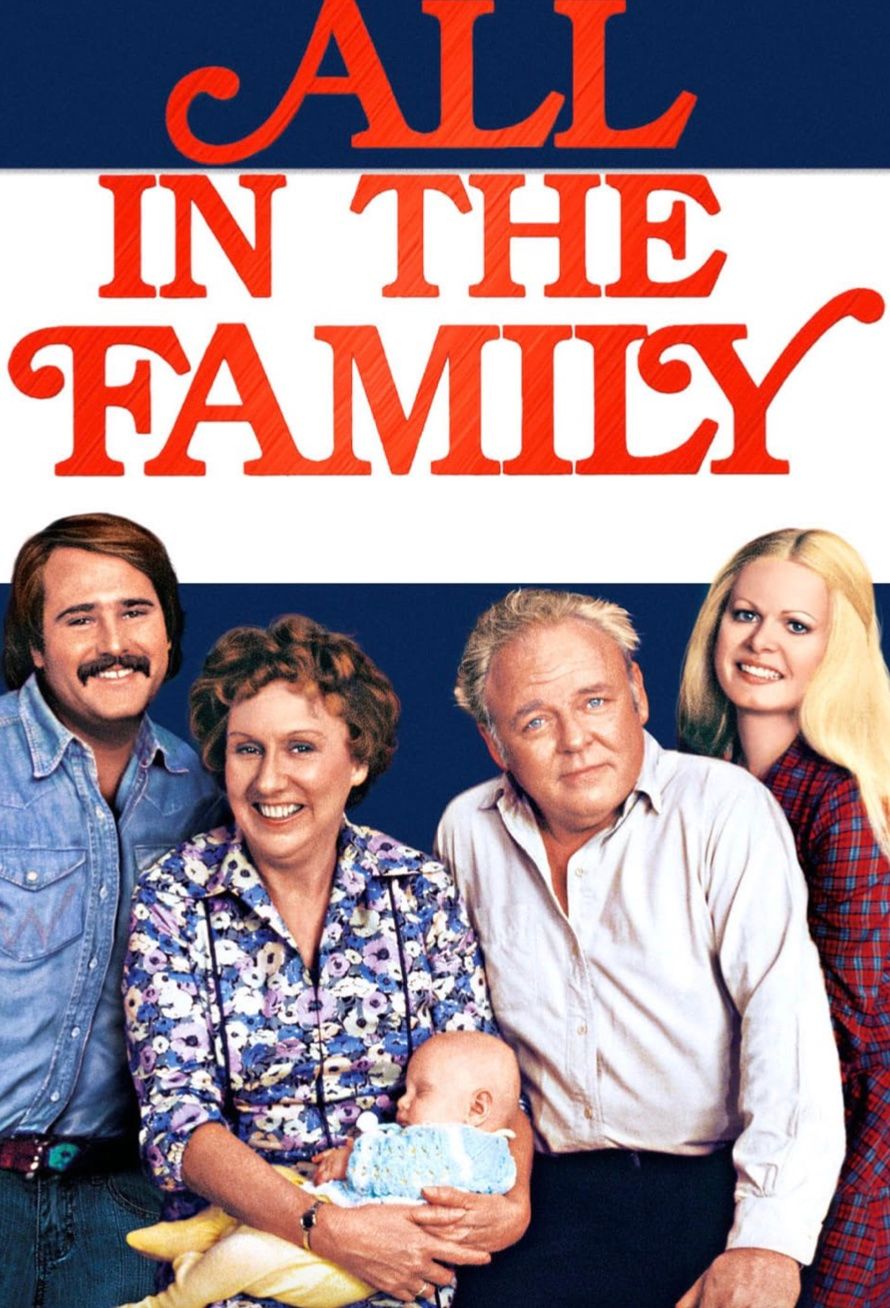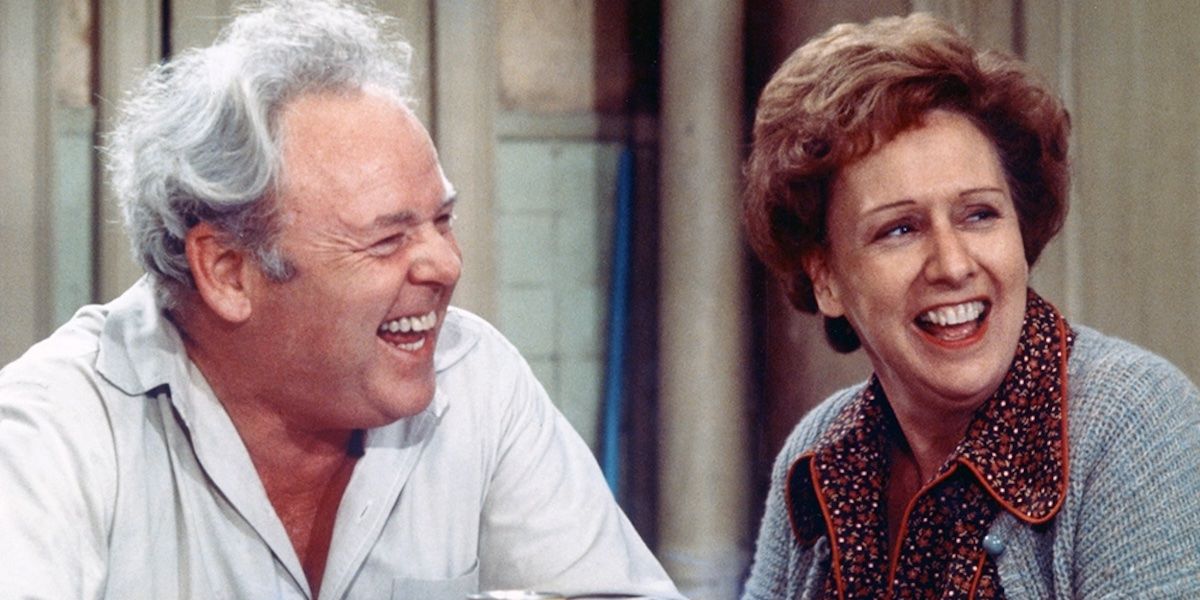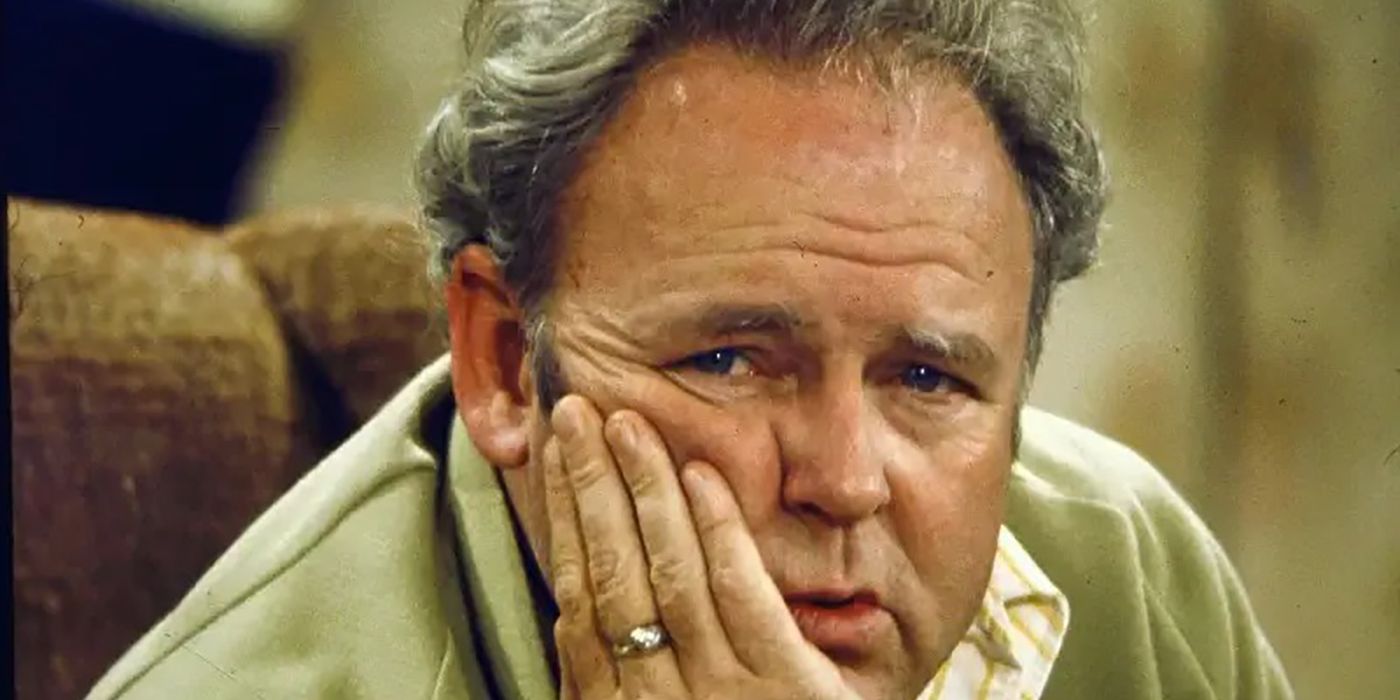
When it comes to groundbreaking television, there are few shows that match the ambition and success of All in the Family. The Norman Lear-createdsitcom tackled nearly every social issue of the time, from racial tensions and antisemitism to queer rights. The Bunker house, led by kindhearted Edith Bunker (Jean Stapleton) and her politically incorrect Archie (Carroll O’Connor), was filled with constant change and a slew of innovative characters (many of whom were spun-off into their own series).
While characters like Maude (Beatrice Arthur) and George Jefferson (Sherman Hemsley) are rightfully remembered for their contributions to the show and their own respective sitcoms, one player who deserves to be spoken about more is that of Beverly LaSalle (Lori Shannon). As one of the first drag queens to appear on American television, she not only shook-up Archie, but became a beloved recurring character. Throughout her run, she slowly helped change Archie’s outlook on the queer community, became close friends with Edith, and was eventually considered an honorary member of the family. Sadly, Beverly’s final appearance ends in a tragedy so great that it causes Edith to rethink her whole faith system. In true All in the Family fashion, the two-part episode is more than just a shocking story, serving as a deeper conversation about sexuality, faith, and hate, themes that are still as important today just as they were back when the show first aired.

All In The Family (1971)
Set in Queens, New York, All in the Family is a sitcom that portrays the life of Archie Bunker, a stubborn, somewhat bigoted blue-collar worker who struggles to cope with the rapid social changes of the 1970s. Between is liberal son-in-law and progressive daughter, Archie will have to learn what it means to change with the times.
Beverly LaSalle Was a Huge Step Forward for Queer Characters
Beverly LaSalle first appeared during All in the Family‘s sixth season, titled “Archie the Hero.” One day, Archie comes home a hero after saving the life of a woman who passed out in the cab that he was driving on an overnight shift. He tells Edith and Mike (Rob Reiner) that he saved her life by giving her mouth-to-mouth resuscitation, leaving his address at the hospital so she can settle the cab fare once she’s released. However, when the passenger shows up, it’s Beverly, a drag queen in town for a gig. While Edith is impressed and kind to Beverly, the revelation is a shock to the closed-minded Archie.
Beverly’s appearance was more than just a gag, though: it was glorious progress for queer characters on television. At the time, TV had a very specific way of portraying LGBTQ individuals, particularly drag queens. In fact, SFGATE says that Beverly LaSalle marked “the first time a television series had sympathetically portrayed a drag queen.”As History.com recollects, the art form of drag was illegal in the United States throughout much of the 20th century, even punishable by arrest, and it wasn’t until the Stonewall Riots of 1969 (just eight years before Beverly’s first appearance) that such radical punishment decreased. Still, queer characters were often portrayed negatively on television (if they appeared at all), thanks to the infamous Hays Code. WRAL News states that for decades, “…gay characters on screen were evil, conniving, and ultimately doomed. Even when the code was relaxed in the 1950s, queer characters were still largely tragic figures, often succumbing to suicide or mental illness.”

From the moment she enters the Bunker house, Beverly is warm, fun, and thrilling; her zest and spunk are the perfect foil to the bigoted nature of Archie. While some of the language used to discuss Beverly’s sexuality is outdated, the episode shines, as most of its content is far more advanced than most other shows, both in that era and in more recent shows. The tradition continues on in the Season 7 episode, “Beverly Rides Again,” as she returns one year later to celebrate the anniversary of Archie saving her life, and Edith is thrilled to see her again. With Beverly’s friendship with Edith established and a semi-acceptance is set up with Archie, Beverly becomes a beloved, honorary member of the Bunker family. Sadly, the character’s next appearance would rock the show and the Bunkers, as All in the Family took on one of its darkest social issues ever.
Beverly LaSalle Met a Tragic End in ‘All in the Family’
Beverly makes another appearance during the Season 8 Christmas special of All in the Family, as she’s back in town and getting ready for her debut at Carnegie Hall. Everyone is excited about seeing her, except for Archie who—despite their past partnership—still harbors prejudice. Edith gives Beverly a special scrapbook gift, and the two tell each other that they think of each other as sisters. It seems as though the outing is setting up a heartwarming holiday episode, but after Beverly changes out of drag, Mike offers to walk her down the street to get a cab. Shortly after they leave, though, a neighbor tells the Bunkers that Mike and Beverly were mugged.
In his hospital bed, Mike tells Gloria (Sally Struthers) that a group of men attacked him and Beverly with a lead pipe. When the group realized who Beverly was, the assault turned even more brutal. While Edith and Archie await news about Mike, the doctor informs them that Beverly has died. Edith is immediately shocked and depressed, and viewers cope with the loss of Beverly along with Edith, who (thanks to an outstanding performance by Jean Stapleton) graphically mourns Beverly. Edith isn’t the only one who’s torn apart, as she’s joined by Gloria, Mike, and, most surprisingly, Archie. As trafic as it is, the effect that Beverly has had on the Bunker family is groundbreaking, specifically with Archie.
Just two seasons before, he was shocked by Beverly’s career and sexuality, but since then, he’s grown after getting to know her and admits that he regrets not telling Beverly how much he cared about her. Beverly’s passing isn’t just for the purpose of bettering Archie, of course, as it also serves as an entry into a larger conversation about bigotry and faith.
Edith Bunker Questions Religion When Faced With Hate in ‘All in the Family’
Following Beverly’s death, Edith struggles to come to terms with the fact she’s been murdered just when her career was starting to take off. Edith, whose Christian faith has been important to her since the first episode of the series, says she may never go to church again. Edith’s struggle spans two episodes and is one of the most realistic and serious subjects the show has ever tackled. Edith speaks as though she still believes in God, but says she doesn’t think he cares about life. The two-part episode strikes up a conversation about the existence of love in a world full of hate; Edith’s conflict isn’t so different from those that many are still having today, especially in the queer community. The series isn’t quick to wrap up the storyline, either, as it convinces viewers that Edith may never be able to cope with Beverly’s demise or her own loss of faith. As the second part comes to a close, the outing is careful not to resolve Edith’s conflict too neatly. At Christmas dinner, Archie’s gone above and beyond to help Edith return to her faith, but after she leaves the table during prayer, Mike goes to comfort her.
Edith returns to the table, her heart still heavy, but leads grace, saying that she’s thankful for her family. It’s the perfect ending to such a complex story. It’s happy enough, but there’s still the acknowledgment that Edith may never understand the hate in the world, how it can coexist with the love she’s supposed to believe in, or the cruelty that took her dear friend from her. Had the show tried to give the story a more straightforward happy ending, it would have been an insult to Edith, and not to mention Beverly, as well as the legacy she created.
The life and death of Beverly LaSalle is one of the toughest subjects that All in the Family ever tackled. One of the first positive portrayals of a drag queen on television, her demise hurt not just viewers, but the entirety of the show’s characters, with Edith’s grief being the most intense. Edith’s loss of faith is real, intense, and brings to light an important conversation many are still having today. As such, the wrap-up was far from clean, and that’s what makes it the right ending to such a heavy story.

